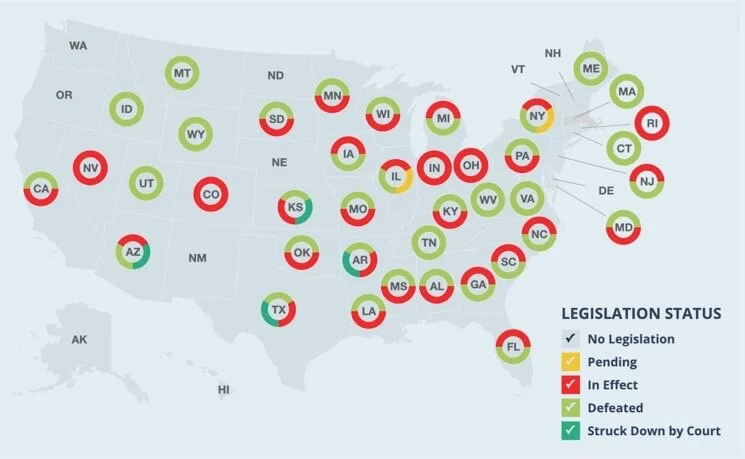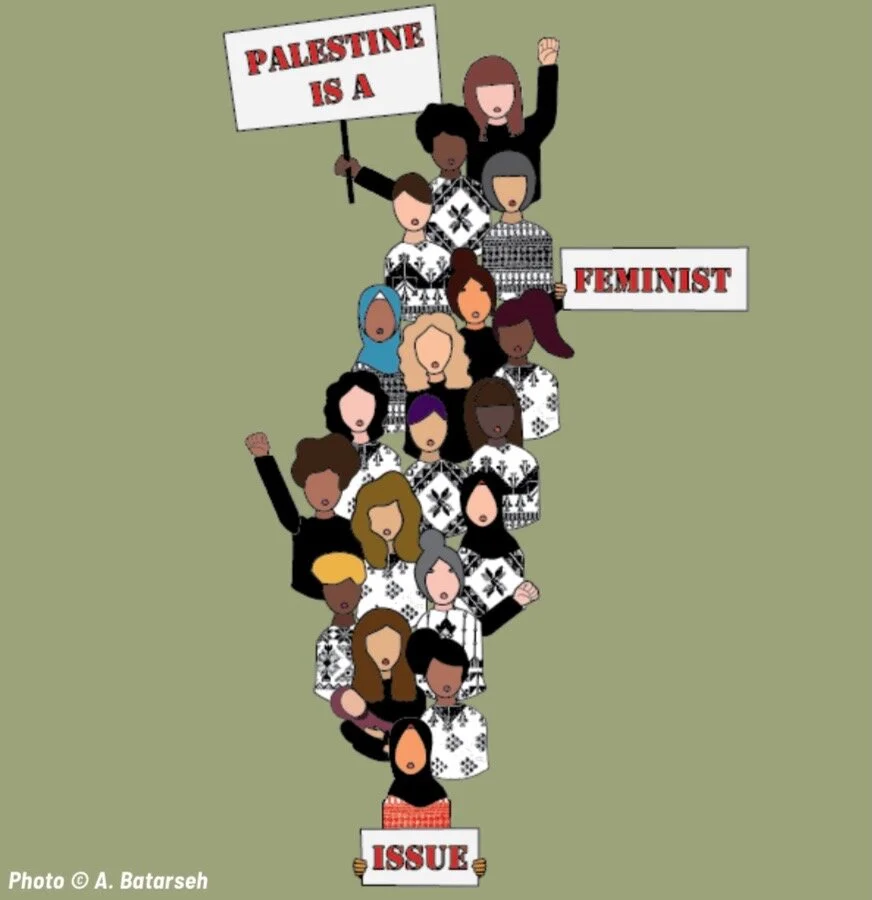BDS Update: 2020 brought progress but obstacles remain
The following was originally published in Palestine in America’s 2021 Politics Edition. Order a print copy, download the digital version or subscribe today!
Just over 15 years after its inception in 2005, the Boycott, Divestment and Sanctions (BDS) movement has become an integral part of Palestinian resistance. BDS calls for the boycott of Israeli institutions and companies; divestment from Israel and companies complicit in the occupation; and diverse sanctions by foreign governments. Through BDS, Palestinian civil society demands global solidarity in holding Israel accountable for its more than 70 years of occupation and colonization of Palestine. In response to the movement’s growing power, countless international efforts to repress it have emerged, including in the United States.
Significant domestic challenges for BDS and the Palestinian movement arose in 2020. Through Executive Order 13899: Combating Anti-Semitism, the Trump administration commanded the Civil Rights Office in the Department of Education to utilize a distorted definition of anti-Semitism to include almost all criticism of Israel in order to silence Palestinian advocacy on campuses. Furthermore, the State Department threatened to label prominent human rights groups Oxfam, Human Rights Watch, and Amnesty International as anti-Semitic in an effort to silence and intimidate them. Palestine Legal, an independent organization dedicated to protecting the civil and constitutional rights of Palestine advocates, reports that as of December 2020, 30 states had anti-boycott legislation in effect, and 40 states introduced or attempted to pass such legislation to silence BDS activists. Thanks to grassroots efforts, only one fourth (25%) of more than 200 anti-BDS bills became law.
Additionally, several social media companies chose to stifle education and discourse related to Palestine. In September 2020, Zoom, Facebook, and YouTube censored, erased, and refused to host a San Francisco State University online class titled, “Whose Narratives?: Gender, Justice & Resistance,” featuring Palestinian activist Leila Khaled. One month later, several universities and academic groups hosted webinars that again featured a message from Khaled; Zoom shut down three of them. Meanwhile, cyberbullying of pro-Palestine students continued with little protection for those students.
Though both major political parties remain committed to a pro-Israel agenda and to stifling Palestinian activism, the 2020 election cycle presented changes worth noting. The reelection of “the Squad,” plus the election to Congress of longtime activist Cori Bush, indicate a pro-Palestine shift in the Democratic party base. In September 2020, Rep. Alexandria Ocasio-Cortez heeded the calls of Palestinian activists and withdrew from an event honoring former Israeli Prime Minister Yitzhak Ravin. Rep. Betty McCollum is a long-standing ally of the Palestinian movement and spearheaded the first-ever congressional bill addressing Palestinian human rights: H.R. 4391, the Promoting Human Rights by Ending Israeli Military Detention of Palestinian Children Act. Rep. Jamaal Bowman expressed support for Israel but also stated that he is “in full support of the human rights of the Palestinian people." Rep. Marie Newman not only affirmed her support for the Palestinian people, but for BDS as well. Those elections indicate a progressive shift in the Democratic party and allow Palestinians, who politicians have ignored and denied for decades, to have some hope of consideration in Congress.
Despite the plethora of new challenges, there were successes in 2020 for Palestine activists and the BDS movement. In June 2020, BDS was victorious in federal court when a three-judge panel of the U.S. Court of Appeals for the D.C. Circuit ruled in favor of the American Studies Association’s (ASA) right to have a pro-BDS stance. Students at Butler University in Indiana successfully defeated measures attempting to restrict the right to advocate for Palestine on campus. Bard College cleared two students who protested an anti-Palestinian speaker of discrimination violations. Students at Tufts University voted largely in favor of ending "Deadly Exchange," a program in which U.S. police departments send officers to Israel to train with the Israeli military, police, and security forces. And finally, perhaps one positive aspect of organizing online is the ability to plan far-reaching events featuring advocates from around the world that would be difficult to connect with under normal circumstances.
“While efforts to shut down Palestine advocacy might have repercussions as a result of repressive legislation, cyberbullying, and harassment, much of these efforts are also intended to chill advocates into self-censoring themselves or to create a chilling effect within the movement,” says Amira Mattar, the Michael Ratner Justice Fellow at Palestine Legal. Mattar recommends that advocates refer to Palestine Legal or a local attorney to understand what their rights are and whether there are legal tools they can use to defend their Palestine advocacy efforts.
The pandemic illuminated the systemic inequalities that plague BIPOC communities, including Palestinians. BDS is one of few venues for Palestine advocacy, and attempts to criminalize it continue to grow in correlation with its increasing popularity. Despite the optimism surrounding the Biden-Harris administration, attacks on Palestine advocates are and have always been bipartisan, and activists must continue to push for justice. As a result, it is essential that activists and students know their rights and turn to resources like Palestine Legal or local attorneys when those rights are threatened.




